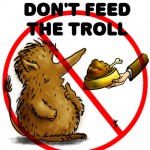Dennis Crouch of The PatentlyO blog recently posted an intriguing tidbit about about well-known IP attorneys Carl Moore (Of counsel at Marshall Gerstein); Timothy Vezeau (patent attorney at Katten Muchin); and Nate Scarpelli (who used to and still appears to be associated with Marshall Gerstein). These prominent members of the Chicago IP community appear to be "moon-lighting" from their respective law practices to act as managing partners at a patent holding company called "Virtual Photo Store LLC" ("VPS"). As reported in PatentlyO, VPS is currently involved as defendant in a Declaratory Judgment action.
Here is a copy of the DJ Complaint, also posted at PatentlyO. (Interestingly, the Complaint lists VPS' address as that of the Marshall, Gerstein law firm.)The Complaint alleges that VPS is a non-practicing entity
about well-known IP attorneys Carl Moore (Of counsel at Marshall Gerstein); Timothy Vezeau (patent attorney at Katten Muchin); and Nate Scarpelli (who used to and still appears to be associated with Marshall Gerstein). These prominent members of the Chicago IP community appear to be "moon-lighting" from their respective law practices to act as managing partners at a patent holding company called "Virtual Photo Store LLC" ("VPS"). As reported in PatentlyO, VPS is currently involved as defendant in a Declaratory Judgment action.
Here is a copy of the DJ Complaint, also posted at PatentlyO. (Interestingly, the Complaint lists VPS' address as that of the Marshall, Gerstein law firm.)The Complaint alleges that VPS is a non-practicing entity
Is There an Emerging Business Model for IP Lawyers’ Owning So-Called "Patent Trolls"? Only Until Their Corporate Clients Find Out.
Without Disruptive Innovation, Many IP Law Firms are Destined to Meet the Same Fate as Buggy Whip Manufacturers
A possible upside to the recent economic downturn is that many previously accepted business models are being revealed as in need of substantial reinvention or even total elimination. The billable hour/leverage law firm model for legal services is one of these increasingly maligned business models, and is now appearing to be in danger of ending up in the dustbin of history. Specifically, even those who benefit handsomely from the billable hour, such as the Cravath firm's many $ 800 per hour lawyers, now realize the fundamental irrationality of charging a client for time spent instead of value provided. This alone should signal that change is in the air. Notwithstanding the growing conversation about the need for alternative legal service billing methods, I fear that the majority of IP law firms will either try to ignore the desire for change or will respond by offering
Only You Can Prevent Patent Expertise Creep: Recognizing the Proper Role of Your Patent Attorneys
Your company has a question about your company's patent portfolio. This is an issue for your company's in-house or outside patent counsel, right? Maybe not. If the question relates to whether an invention is patentable and whether the patent is likely to grant, a patent attorney is the correct person to contact. But if the question is whether you should obtain a patent on a patentable invention, your company's patent counsel is quite probably not the correct source of counsel. The latter is a question of patent strategy, which is inherently a business question, not a legal question. However, many businesses assume that when a patent issue comes up, a patent attorney should be contacted because a patent attorney knows about patents. So why are patent attorneys typically not suited to address patent business questions? As many people know, useful, novel and unobvious inventions are patentable. Significantly, however, there is no


